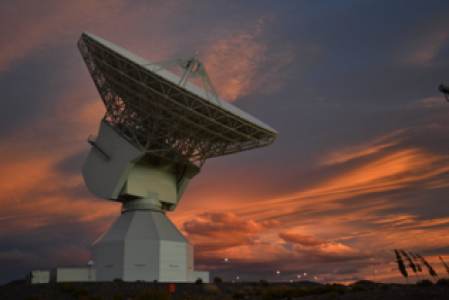CSS Extension Component for integration in MICONYS-CC
Programme
GSTP
Programme Reference
GT17-119GI
Prime Contractor
ATOS IT SOLUTIONS AND SERVICES, s.r.o.
Start Date
End Date
Status
Closed
Country
Czech Republic

Objectives
The CCSDS has developed the Monitored Data Cross Support Transfer Service (MD-CSTS), a standard service by which a spaceflight mission can obtain real-time status of the space communication and tracking services being provided by the Ground Station. The objectives of this activity are twofold, to:
- define and develop the component that handles such cross-support services (CSS) within an European Ground Segment Common Core (EGS-CC) based mission control system.
- complete the prototyping activity for the CSTS Application Programming Interface (API), and perform the porting to Java
Description
The monitoring and control systems infrastructure at ESOC (based on SCOS-2000) is going to face obsolescence. ESA has decided to adopt the EGS-CC for future Monitoring and Control Systems for the pre-launch, operational and post-launch phases. For the ESOC EGS-CC monitoring and control infrastructure, the following main products are expected:
- a new generation mission control system infrastructure (MICONYS-CC)
- a new generation ground data systems validation infrastructure (TEVALIS-CC)
- a new generation ground stations monitoring and control infrastructure (GSMC-CC) to be used for the execution of ESTRACK operations.
- a new generation Operations Preparation Environment (OPEN-CC)
The CSS (Cross-Support Services) Extension is one of a number components to be developed on the top of the EGS-CC in order to offer the equivalent functions to the existing monitoring and control support infrastructure.
The CSS Extension component basically consists of the CSTS Consumer application that in MD-CSTS is referred to as the CSTS User. It will be integrated in the EGS-CC-based Miconys (MICONYS-CC). This component will implement, through appropriate interfaces, the following functions:
- the acquisition of ground station monitoring data and events via the MD CSTS
- translating the CSTS information model to the EGS-CC conceptual data model
- the injection into the Mission Control System
The CSS component implies that a CSTS API is available in the Java language.
The MD-CSTS is a service by which a spaceflight mission can obtain real-time status of the space communication and tracking services being provided by the Ground Station. The MD-CSTS service is built on top of the CSTS Framework. The MD-CSTS provides cyclic reports and event notifications associated with the status and performance of the ground station during a space link contact.
The activity consists of two main tasks.
Task 1 is the finalization of the CSTS Application Programming Interface (API). It consists of the porting to Java of the CSTS API prototype; this includes porting of code (C++ to Java) and UML (Rational Rose to Magic Draw).
Task 2 is the design and development of the CSS Extension Component. The CSTS Consumer application shall be designed in a way that meets the integration requirements of the EGS-CC-based MICONYS architecture. This task consists of
- Study the CSS design, define interfaces and interactions with other EGS-CC components of the EGOS-CC project.
- Propose a concrete tailoring exchange format that defines the contents of the provided information from the CSTS Provider. Analyse the model-to-model tailoring translation aspects for integrating this tailoring information into the EGS-CC Conceptual data model
- Conceive the structure and contents of the MD CSTS Service Instances, according to which the Service(s) will be configured, activated and then run.
- Conceive the CSS architecture required to perform: acquisition of ground station monitoring data and events, translating the CSTS information model to the EGS-CC conceptual data model and injection of the monitoring data into the MICONYS-CC processing chain
- Develop CSS code, including the set of test tools for its validation, produce the complete set of design documentation, running the full set of validation tests , and producing the relevant Test Reports and produce a simulator for the CSTS MD Provider for testing. The MD CSTS standardization activity produced a C++ based MD Provider prototype, which can be made available as a basis of such test
Application Domain
Generic Technologies
Technology Domain
9 - Mission Operation and Ground Data Systems
Competence Domain
8-Ground Systems and Mission Operations
Initial TRL
TRL 4
Target TRL
TRL 8
Achieved TRL
TRL 6
